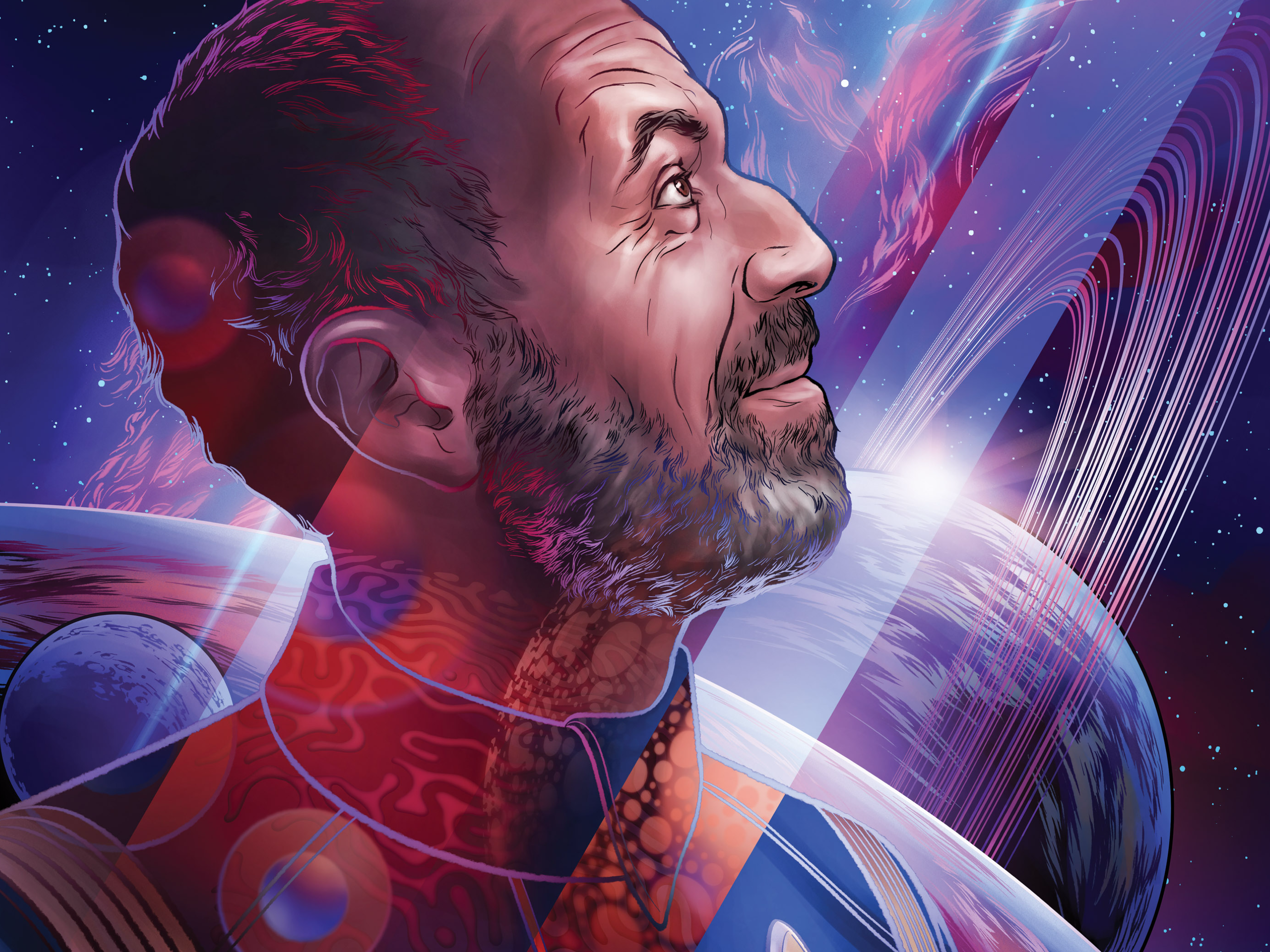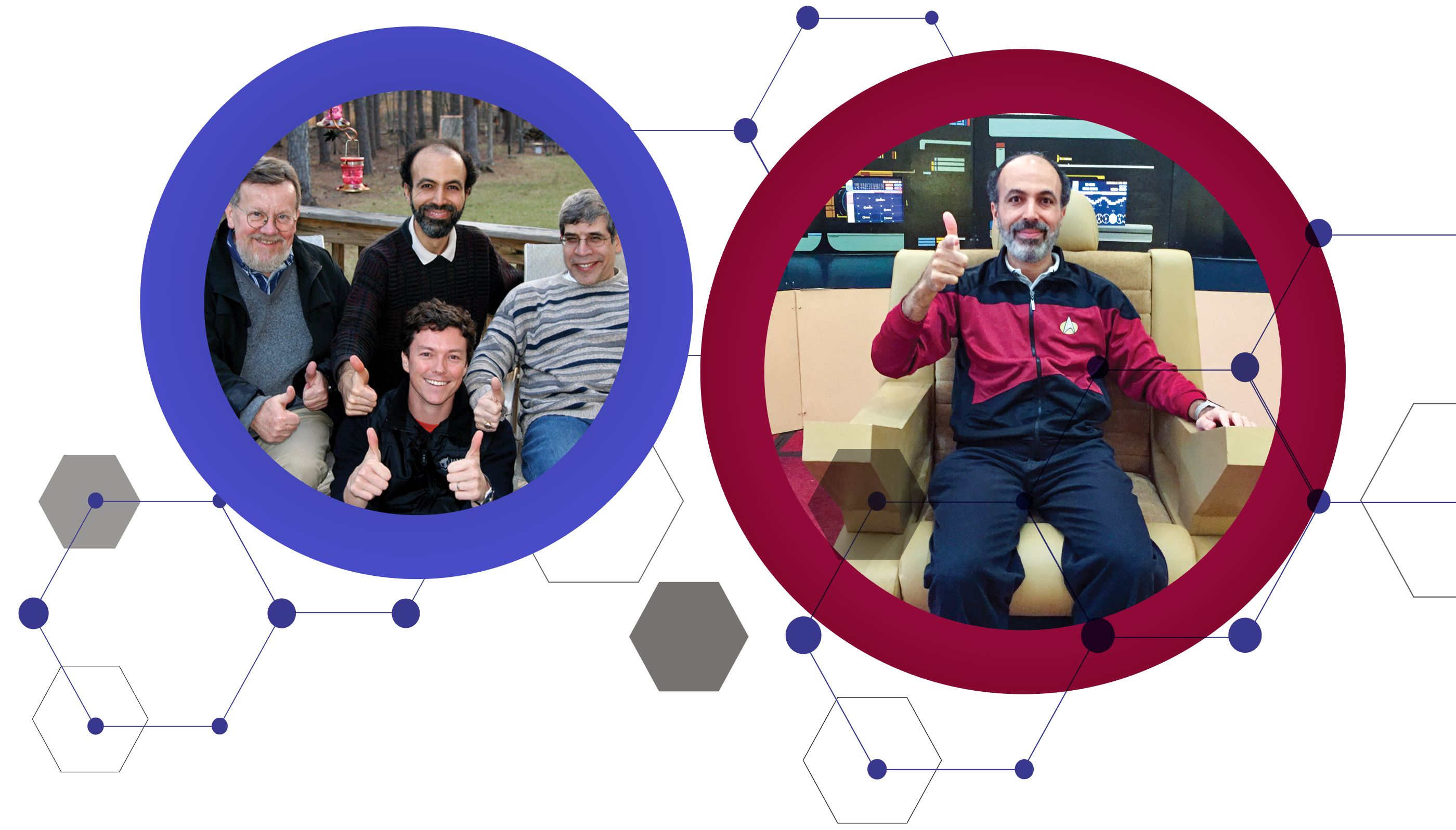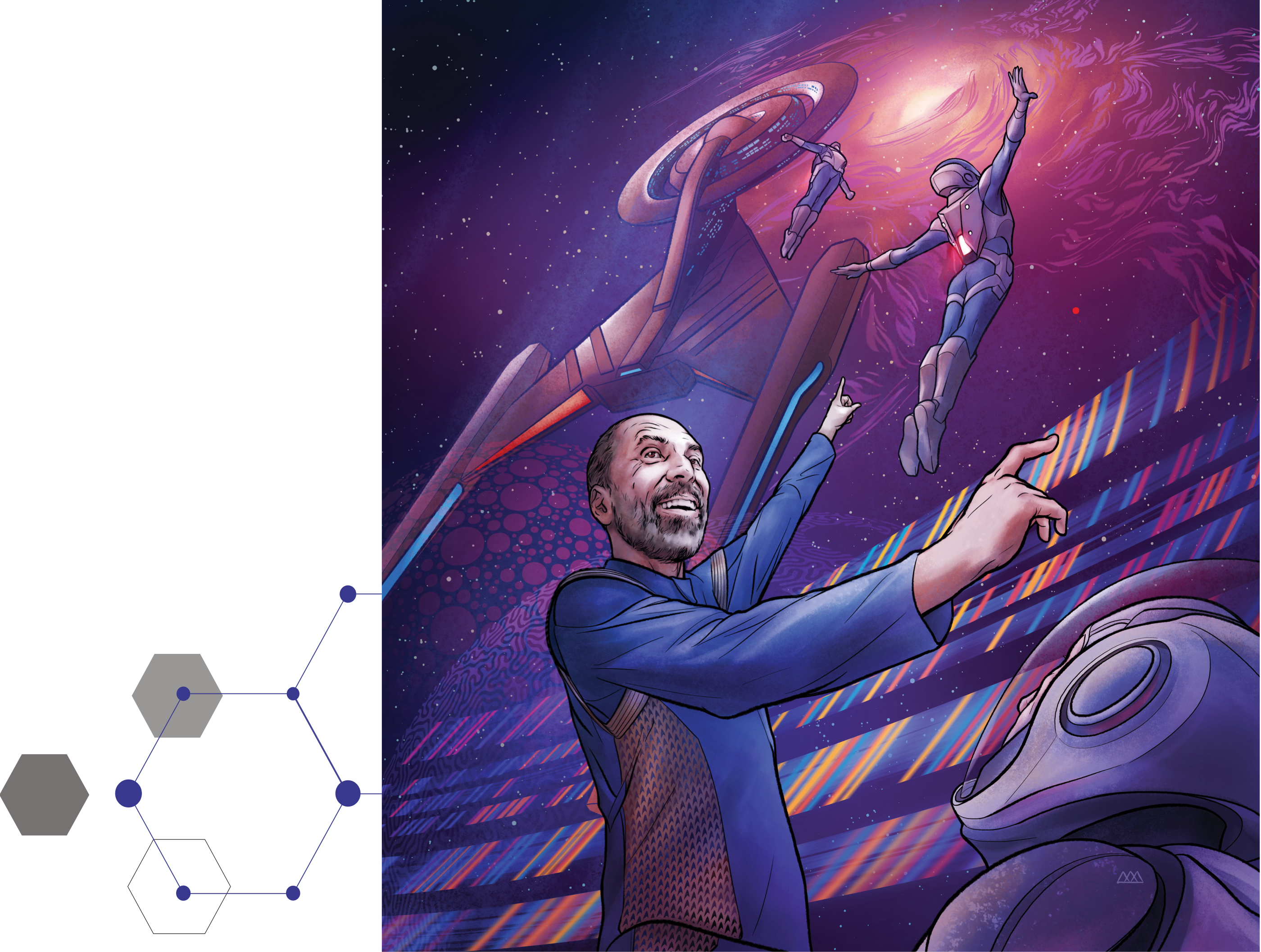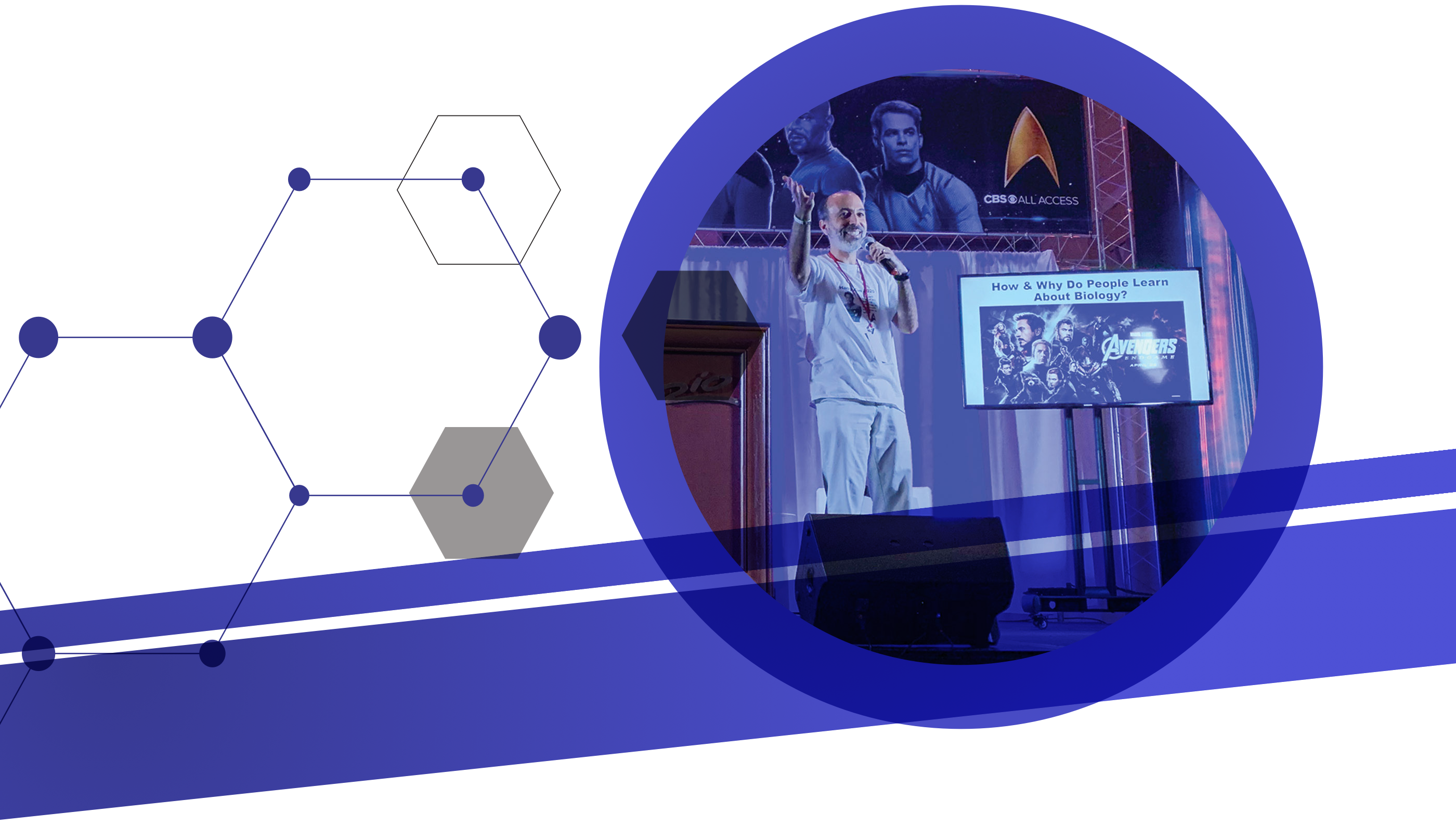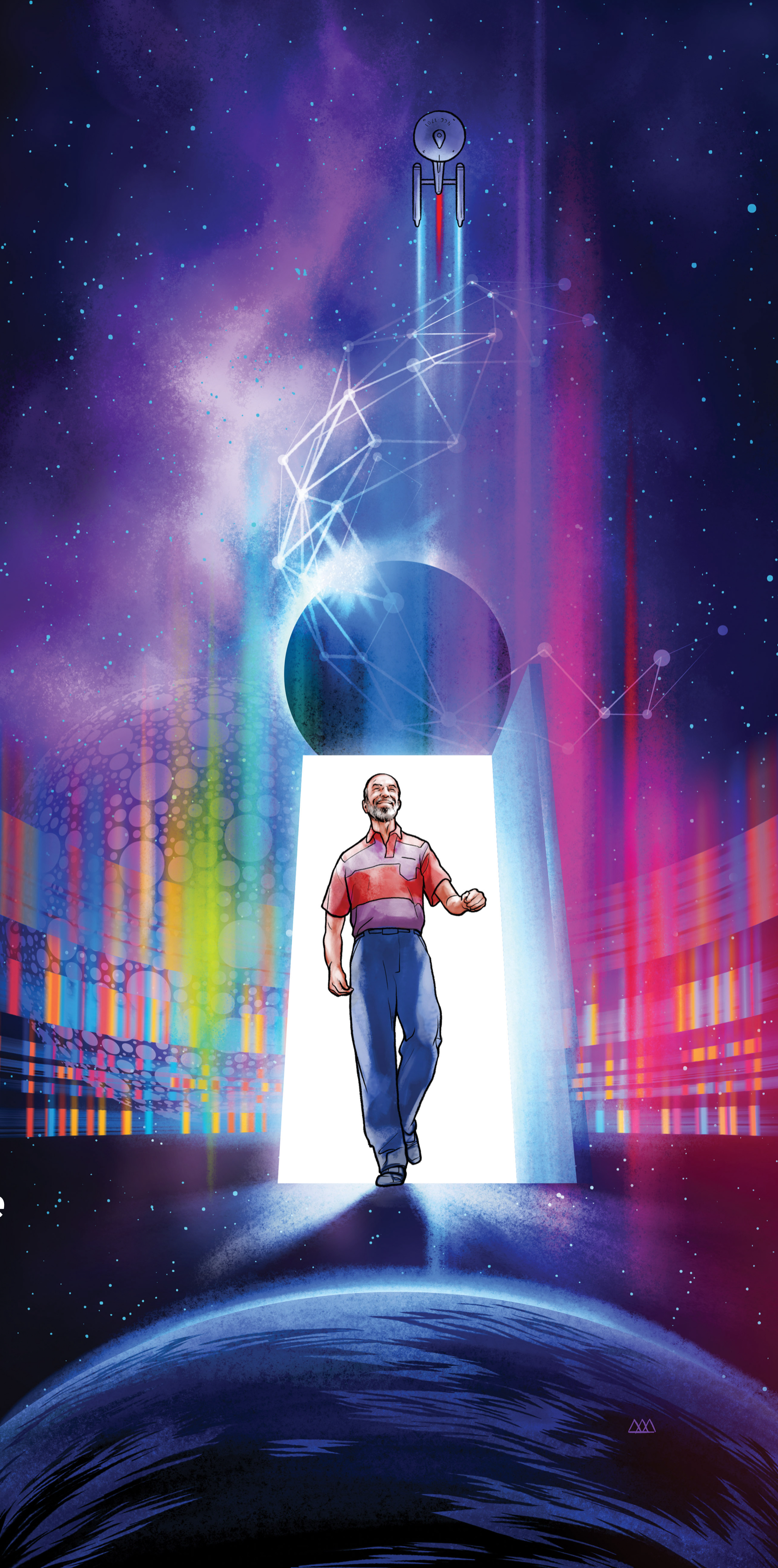Unconventional
So: two Klingons and a Starfleet Admiral walk into a lecture. It sounds like the setup to a Star Trek joke, but it sets up something entirely different. As Noor was giving a presentation at DragonCon with astrophysicist Erin Macdonald, actress Jayne Brook and her castmates showed up in the back of the convention hall. Brook, a Blue Devil herself, played Admiral Katrina Cornwell on “Discovery” and made a Duke connection with Noor after the talk. They traded emails, and a few months later, he invited her to stay with his family and speak to his class in Durham.
“He approaches every other mind he comes in contact with as another person who he’s curious to hear from,” Brook says. “That is an environment in which you learn naturally, just by enjoying the other person’s presence and what they know.”
Brook and Noor met up again at another Star Trek convention in Las Vegas and struck up a lasting friendship. She connected him with the “Discovery” writing staff, which led to his contract as their biology consultant.
Noor is reluctant to choose favorite characters on the Star Trek series, but at least one show has an obvious choice.
“So many of them are so radically different, it’s like picking your favorite plant. Do you mean fruit, or vegetable or tree?” Noor says with a laugh. “But I liked [Brook’s] character a lot even before I met her.”
Throughout their encounters, Noor and Brook looked for ways to collaborate. When COVID-19 locked everyone in their houses, they finally had their chance. BioTrekkie with the Admiral is a recent series of YouTube videos where they dissect and discuss the latest episodes of “Discovery.” The clips live amidst Noor’s other science-focused BioTrekkie videos, but they have the added benefit of Brook’s experience with the show’s production and what Noor describes as “her wonderfully curious and inquisitive nature.” And their banter and chemistry is genuine.
“We had so much fun just having a conversation back and forth,” Brook says. “It’s this enjoyable dynamic of discovering these cool secrets about our world — things we don’t think about. I can’t look at fireflies the same way again.”
Making It So
Now, we go to the distant future. The crew of the U.S.S. Discovery have selflessly flung themselves centuries into the future to keep critical information out of evil hands. They have arrived in the year 3189 to a Federation they barely recognize and a sick bay full of deathly ill aliens called the Kili. To make matters worse, Noor is the one who got them sick. Sort of.
The season three episode “Die Trying” revolves around a risky quest to find a cure for the Kili people. Because it’s the only ship that can get there in time, Discovery jets off to a seed vault that might hold the key. Noor was asked to propose a non-communicable disease caused by the Kili diet, curable by one of the seeds. His answer? Prions. Though in animals, prion-based diseases usually come from meat (like mad cow disease), it wasn’t impossible to think that alien plants could harbor similarly dangerous misfolded proteins. These kinds of plausible stretches are a big part of what Noor (and his fellow consultant Macdonald) do for “Discovery,” and it’s up to the writers how much detail to include.
“They’re going to use it or they’re not. No hard feelings,” he says. “I’m just happy to be asked.”
And yes, he reads fan theories online during the season. Noor and Macdonald collaborated on the true cause of season three’s central mystery, and he knew “nobody is ever going to guess this one.” True to form, “Discovery” found a surprising way to connect solid science with its core of compassion in its season finale.
‘A Different Kind of Human’
“I feel very thankful and very fortunate for the opportunities people have given me,” Noor says. “I’m very grateful for that.”
When he takes his family to visit his parents in Hampton, Noor is eager to visit Williamsburg and take a walk around campus. His kids insist on sampling the offerings at the Peanut Shop and the decidedly unfuturistic bread ends with house dressing at the Cheese Shop. And even though his old haunt, Millington Hall, has given way to the Integrated Science Center, “I love William & Mary,” he says. “I love coming back and visiting.”
It’s a place that set his career in motion and put him on a path toward scientific renown and the most hallowed science-fiction icons. But more than that, Noor has made an indelible and remarkable impression on his colleagues and friends in academia, in Hollywood and around the world.
“I think he’s just a really good man,” says Jayne Brook. “People believe that when you’re really good at something, it makes you a different kind of human. For some people, maybe it does. But maybe Mohamed has gone so far in science that it makes him humble. Maybe his knowledge is so vast that he’s aware of the even greater mysteries out there that scientists have not yet tackled.”
For Noor’s part, one has to dig into his own research output — the Genetics paper about Bruce Grant — to see him take much credit for his own dizzying success. His career, as he wrote with characteristic modesty, has been “pretty good.”
